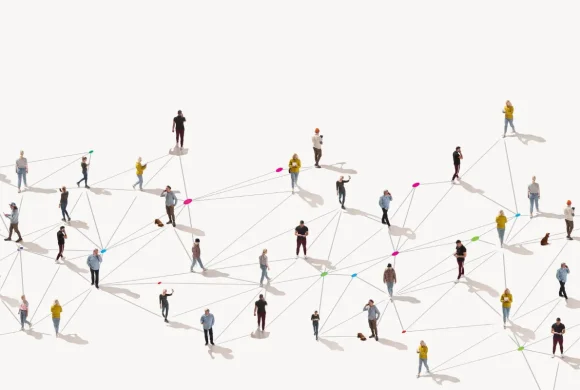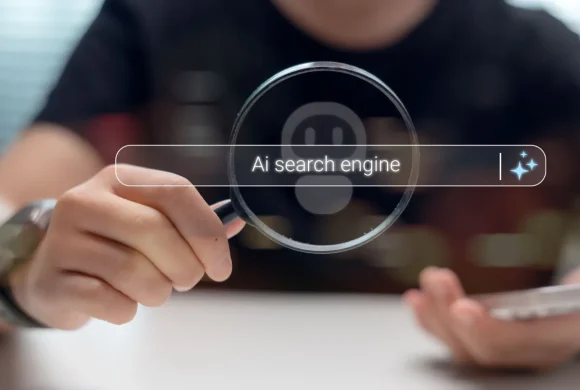How do Articles on my Website Generate Leads for my B2B Business?

Many business leaders don’t understand the value of adding regular articles to their own B2B websites.
Questions go something like this.
What’s the point of adding articles week in and week out to our own website? How does this activity generate leads?
Shouldn’t those articles be somewhere else, like on LinkedIn or in an industry publication?
And can’t we rely on social media and advertising, which are easier to resource and require less thinking and input from our senior team?
In this article, we explain why adding quality content to your own website is a vital component of generating quality leads in B2B digital marketing, why this strategy works and why the ROI compounds over time.
How do articles generate leads?
To understand how articles on your own website generate leads, you need to understand a bit about three things:
- Potential customers in research mode
- Google and search optimisation and
- Website browsing behaviour
I’ll break it down now.
Let’s start with potential customers in research mode.
The first thing potential B2B customers do when they are looking for solutions to business problems is to jump online and do a Google search.
The days of relying on existing networks and contacts are quickly fading into the sunset.
The latest generation of decision makers spend more time researching and less time picking up the phone and talking to humans. Ideally, they love to find all the answers they seek through digital rather than human interaction.
They trust Google’s free search results way more than the paid search listings. (For a more detailed discussion on free versus paid Google search, head to a previous article).
And when they are in research mode they are in active search mode. They don’t mindlessly scroll LinkedIn for the answers they seek. (See this article for an explanation of Google V Social in B2B marketing).
To put your business in front of this potential customer in research mode, your website needs to come up in a free Google search for the question they have asked.
Ok. How do you achieve that?
The next part to understand is a little about Google and search optimisation.
First, your B2B website needs to be set up for Google from the beginning.
Then, to rank on the search listings for the problem your potential buyer is asking about in their Google search, you need information on your site about the solution to that particular problem.
The larger and more competitive your niche, the more information you need on your website.
And finally, once your potential customer hits your website, how do you generate leads?
The design, look, and feel of your website must be professional and appeal to them.
You need to answer their question (and ideally wow them with more information than they were expecting).
And you need to helpfully lead them around your site so they can start to learn more about your business.
So, throughout the article, you might have links to learn more about your services and products, and, at the bottom, you might guide them to look at some case studies and give them an easy option to make contact.
Every user is different, and every business is different, so giving people options and letting them find their own journey through the site is the key.
That said, I can tell you that from 15+ years of analysing website browsing data, the most visited pages in the research journeys that generate leads are about teams, services/products and case studies/projects.
Why not put the content on LinkedIn or Industry Websites?
In B2B marketing, content is the currency.
Well-written, expert content that stands out from the crowd is like gold in a sea of AI-driven mediocrity.
Everyone (including social media giants and industry media outlets) wants that content on their platform so they demonstrate large volumes of visitor data and sell advertising on the back of it.
By giving them your content you feed their corporate machine.
There are good reasons to give your content away – like if an article or interview is going to give you great exposure to a large and ideal audience – but in general, giving your hard work to someone else is not a smart business move.
Remember also that people on your website are looking at your business and your business only. You are the majestic kingfish in your own pond.
On LinkedIn and other platforms, you are simply a tiny tadpole in a gigantic, noisy sea.
Growing your digital real estate
And that brings me to compounding ROI.
If you grow the size of your own website, over time, you will come to own more and more of the digital real estate that’s highly relevant to your business.
Google will come to trust your website more and more.
You will appear in more and more searches for terms relevant to your business, the free traffic to your website will compound, and the volume and quality of leads will just keep growing.
This is a very powerful business asset that has value now in generating ideal business, and later if the business is sold.
Meet the author
I’m Deb Croucher, a former veterinary surgeon with a passion for B2B marketing.
In 2008, I permanently traded my stethoscope for SEO after successfully leveraging Google to power my vet business.
Diagnosis and treatment is still part of my day though!
In Brilliant Digital, I identify issues, uncover opportunities and formulate marketing strategies that support business success and longevity.
You can read more B2B marketing articles here. I love to chat so feel free to drop me a line!

About Deb
Meet the author
Deb Croucher is the founder of Brilliant Digital. She works directly with SME owners to create strategy-led, full-service marketing that delivers, not just in Google, but in the new world of AI-powered discovery.











